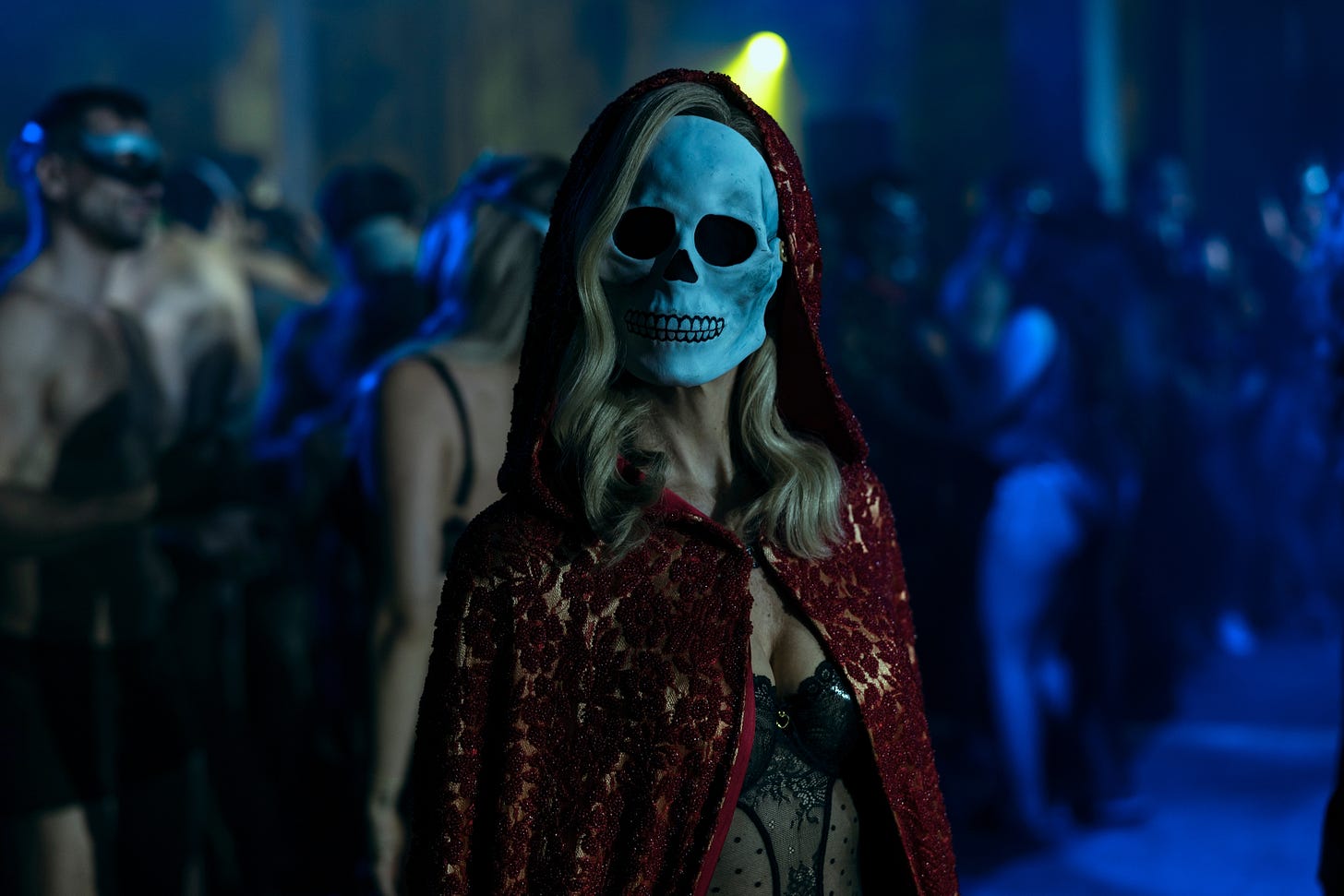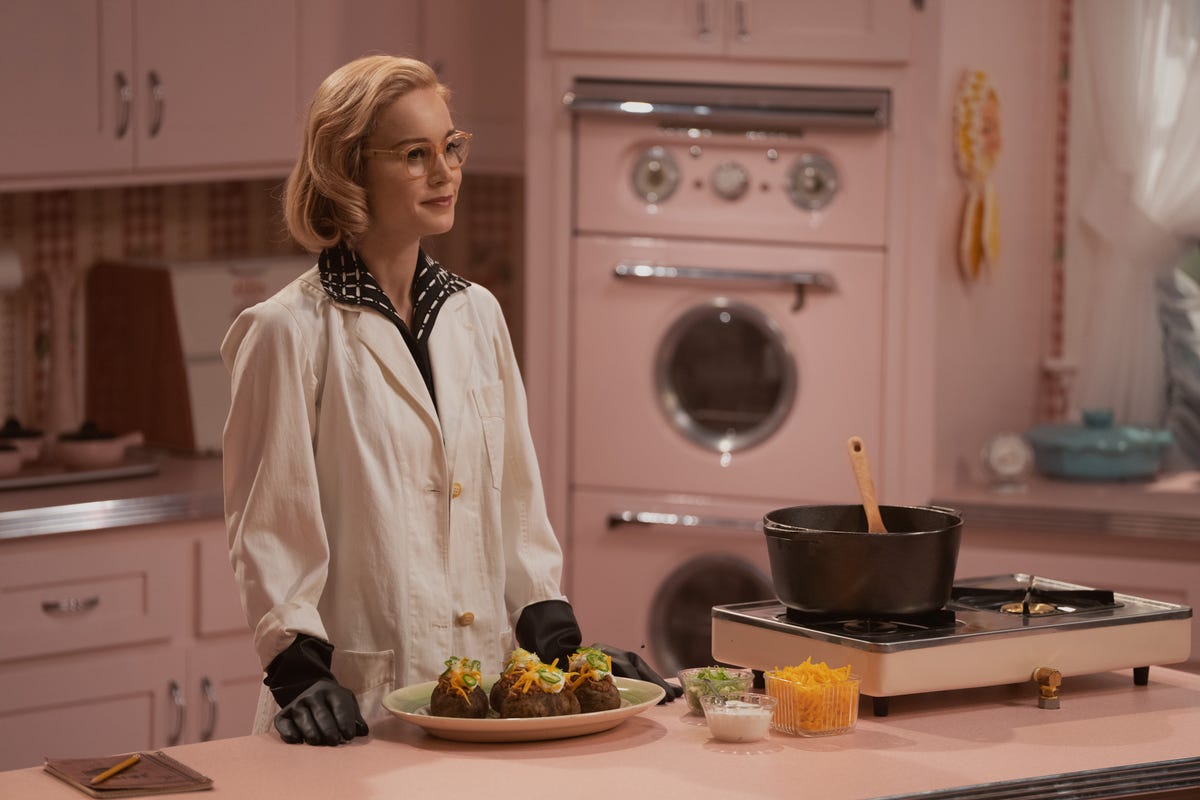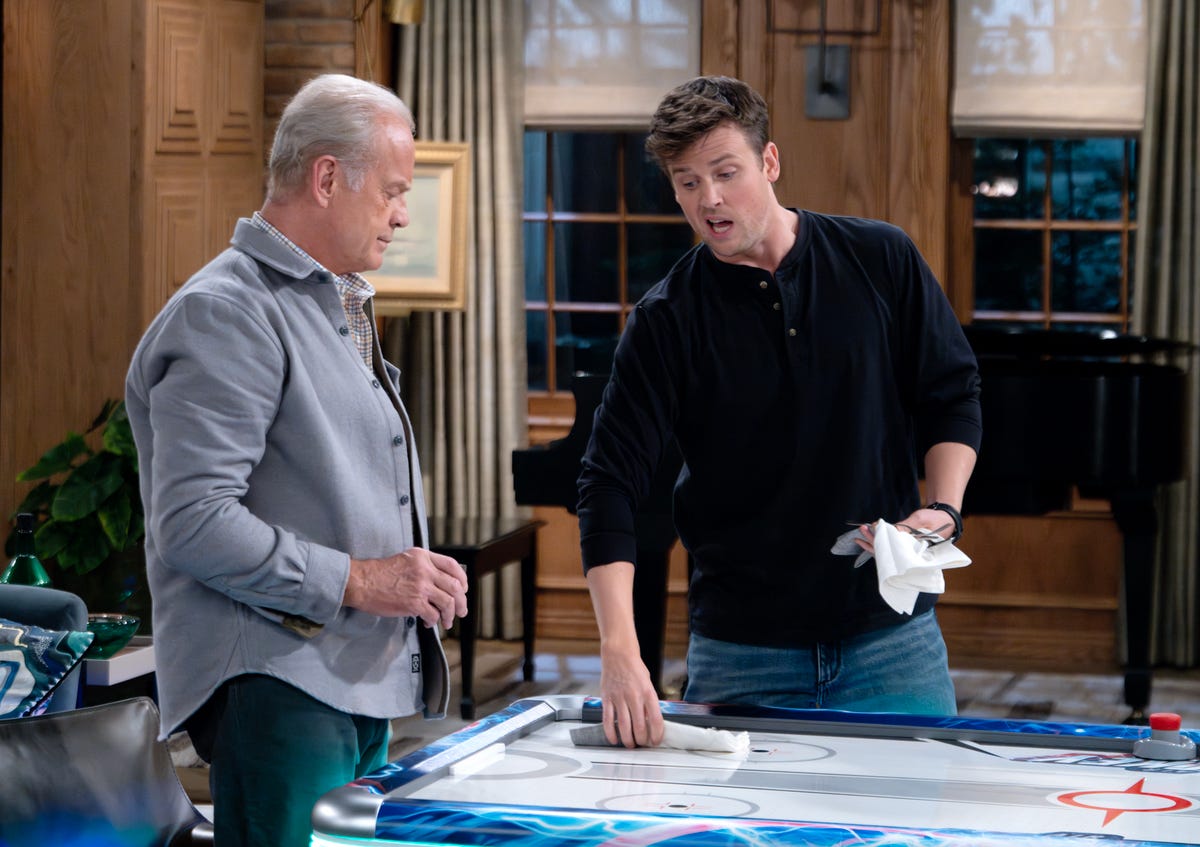Tossed salads and scrambled history
'Frasier' returns, 'The Fall of the House of Usher,' 'Lessons in Chemistry,' and more
This week’s What’s Alan Watching? newsletter coming up just as soon as I tell you that I’M ON THE RADIO EVERY DAY!!!
What’s Alan writing?
Yesterday’s release of The Fall of the House of Usher gave me an excuse to write about how Mike Flanagan has created the ideal Netflix series, even if this, The Haunting of Hill House, etc., aren’t technically the same series. I had a couple of issues with this one — as I have with all of Flanagan’s miniseries — but he is a damned reliable storyteller. Also, I’m a fraidy cat who generally doesn’t do horror, but Flanagan’s stuff tends to operate just inside my limits on this genre.
Back in ye olden days, TV networks liked to announce cancellations late on a Friday afternoon. That way, the news would either be buried in the Saturday newspaper, or else it would be forgotten altogether. In a world of round-the-clock news, social media, etc., that strategy doesn’t really work. But the lengthy WGA strike, and all the coverage of it, provided a certain amount of cover for various networks and streamers to cancel shows. I wrote about 20 of the more notable instances of this extended Take Out the Trash Day period.
I come and go in my Rick and Morty viewing, and am not sure of the last season I watched in its entirety. But with Justin Roiland gone from the show as both a writer and the voice of the title characters, I decided to watch and write about the first couple of post-Roiland episodes, which are… fine? Certainly, my concern was not with the new voice actors’ ability to sound exactly like Rick, Morty, Mr. Poopybutthole, etc.
Larsons in Chemis-Brie
Technically, I should have called this section “Odds and/or ends,” or perhaps “What didn’t Alan write?” But I couldn’t resist inflicting upon you the terrible fake name Dan Fienberg and I came up with for Apple’s new Brie Larson miniseries Lessons in Chemistry. I watched the show months ago for a potential print review that never materialized for boring reasons, and then equally boring reasons prevented me from reviewing it online ahead of today’s premiere. If you’ve read the bestselling book on which it’s based, you know the deal. If not, it boils down to imagining a world where a version of Rosalind Franklin — the scientist who was essentially shut out of credit for the discovery of DNA — later became a beloved Julia Child-esque TV chef. I have not read the book and had mixed feelings on the show. It’s primarily a Larson showcase, and she’s very good, threading the needle of a character who could come off as a caricature of people on the spectrum, and instead simply seems both guarded and too smart for any room she enters. But the pacing isn’t great, and the plot can veer abruptly between harsh reality and wish-fulfillment fantasy. And there’s an episode focusing on Larson’s character’s dog that I found utterly ridiculous, while at least one of my critical pals adored. Still, I enjoyed more of it than I didn’t.
On Wednesday, The Hollywood Reporter published a story about massive changes in how Marvel’s TV operation is run, including replacing the creative team for the upcoming Daredevil: Born Again and reshooting a lot of it. (Reports that Daredevil wouldn’t even appear in costume until the fourth episode recalls the iconic Surf Dracula tweet.) Beyond issues with that one show, the big news is that Marvel Studios seems to have finally accepted that you can’t just bypass the idea of a showrunner. In the past, they would hire a head writer, have them come up with the initial scripts, then hand things over to the director to oversee production and tweak the scripts, and then bring in Kevin Feige and the other execs to look at all the footage and decide what’s working and what isn’t. It’s a convoluted method of making television, with a sense of Marvel thinking they’re smarter than everybody else — or, at least, not recognizing that you can’t make television the way you make movies. There’s a reason nobody else operates like this. There have been some very good Marvel shows in the Disney+ era, but also some bad ones, and a lot that felt like they should have been much better than they were. If they’re serious about shifting their production methods, it’s at least a step in the right direction.
Meanwhile, if you happen to be going to New York Comic-Con tomorrow, I’ll be moderating the Scott Pilgrim Takes Off panel at 5 o’clock, with co-creators Bryan Lee O’Malley and BenDavid Grabinski. Much fun will hopefully be had by all.
Hey, baby, I hear the St. Louis Blues a-callin’, and I don’t know what they are…
Finally, we come to this week’s biggest TV bummer, even if it’s not a surprising one: the Frasier revival on Paramount+ is terrible.
Really, it shouldn’t be a surprise when any TV revival is terrible, because the vast majority of them are. That two of the better ones — Party Down and Justified: City Primeval — have come in the same year is, frankly, much more shocking than that a version of Frasier without any of the supporting cast, and without any of the original show’s writers, isn’t funny in any appreciable way.
Why are most revivals bad? They’re bad because, as I often say, TV shows are a product of a particular moment in time for the characters on the show, for the people making the show, and for the people watching it. Remove any or all of those groups from that context, and you almost always risk losing what made each series special in the first place. See, for instance, how awful it was to watch Rory Gilmore acting the same way as a woman in her 30s as she did as a 16-year-old, with no acknowledgment of this. The ones that work tend to embrace the passage of time in some way or other, like how The Conners depicts how much harder it is to be poor in America now than it was in the early Nineties.
(For that matter, while the Veronica Mars revival had its issues, it acknowledged early and often that Veronica continuing to do this work as an adult was much less fun than when she did it as a teenager. Twin Peaks: The Return — aka the greatest revival of them all — doesn’t really follow this rule about the passage of time, but only because Twin Peaks doesn’t follow any rules, in any of its incarnations. And while we’re on the subject of revivals, Welcome to The O.C. — which you can preorder right now and then get a free bonus chapter, weeks ahead of our publication — has some material in the epilogue about why a new version of that show has never materialized, and why it would likely be a terrible idea.)
The new Frasier actually does a decent job of acknowledging the passage of time, as the main conflict is a role reversal of Frasier’s relationship with Martin, here involving a grown-up Freddy as a blue-collar firefighter who has nothing in common with his father. The problem, as I detail in my review, is that the relationship makes no sense based on what we know about both characters from both Frasier and Cheers. Young Freddy would never grow up to be exactly this guy. And even if that happened, Frasier Crane has plenty of experience hanging out with guys who love sports and don’t share any of his interests. The punchlines are uniformly corny, and several may make you wonder whether Philo T. Farnsworth made a mistake inventing television. But it’s the superficial read of Frasier and his world that really drove me nuts. A joke where Frasier thinks everyone is mispronouncing the name of the Boston Celtics makes some sense in theory if you’ve only ever watched a handful of Nineties Frasier episodes. But if you’ve actually seen 20 years worth of stories about the character, then this isn’t that guy at all. I’d be okay with the rewriting of history if the gags were better, just as I’d be more accepting of the groan-inducing humor if Frasier felt more thoroughly like Frasier. Instead, it’s off in both areas.
That’s it for this week! What did everybody else think?








The first red flag for me was three minutes into the premiere when Frasier sees a poster that says "Boston's calling. Are you listening?" It's cute, not funny. But instead of letting it be the small, quiet, maybe even poignant moment that it could be for this character (Cheers and Frasier often handled those small silent moments quite nicely I thought), they put audience laughter over both the poster and Frasier's reaction to it. Really disappointing and a total miscalculation that doesn't bode well for a reboot that I'll probably keep watching anyway 🙃
I had hoped the dog episode of Chemistry was going to just be the opening sequence (which would have been kinda cute?) and then it was an entire episode and ... yeah, not my cup of tea either.